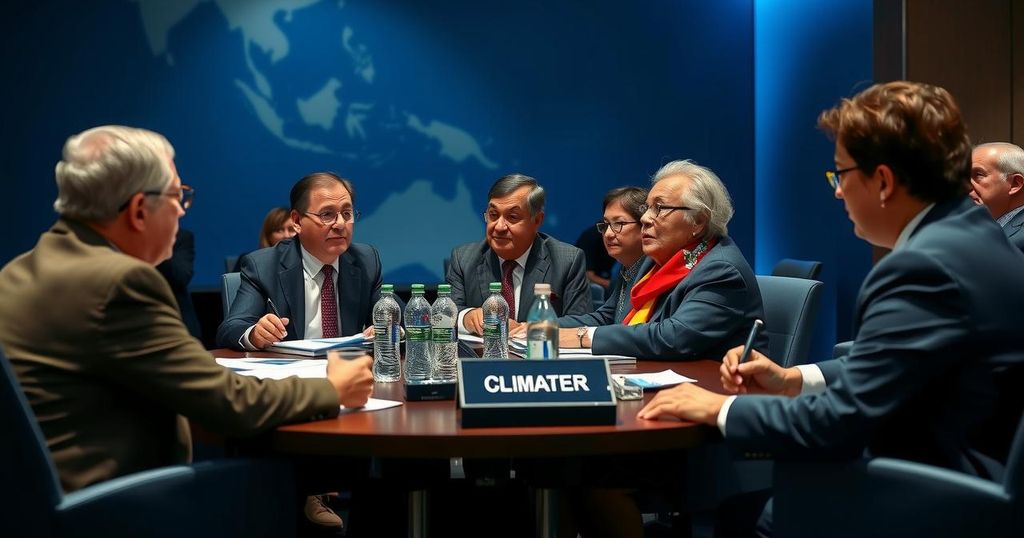Urgent Action Required for Climate Finance at COP29: A Call from Palau
COP29 negotiations reveal a frustratingly slow pace on critical climate finance issues for Small Island Developing States (SIDS) like Palau. These nations face severe threats from climate change, necessitating urgent international support. The leadership advocates for meaningful dialogue and decisive action to meet the unique challenges and vulnerabilities of SIDS. The conference represents an important opportunity for concrete, supportive measures to safeguard the future of these communities.
As COP29 negotiations progress in Baku, there is a growing concern regarding the slow pace of discussions on critical issues such as climate finance and the operationalization of the loss and damage fund. These elements are crucial for Small Island Developing States (SIDS) like Palau, whose precarious situations demand urgent attention. The leadership of Palau highlights that the climate crisis poses an existential threat that transcends traditional security concerns. The relentless impacts on food security, economic stability, and cultural heritage underline the immediate need for suitable climate financing solutions that are scalable, adaptable, and predictable. In Palau, rising sea levels are encroaching upon ancestral lands and agricultural practices, presenting immediate threats to local communities. Despite contributing minimally to global climate change, SIDS experience disproportionately intense effects from environmental degradation. The international community has recognized SIDS as a “special case,” necessitating targeted efforts to mitigate and adapt to climate change, as affirmed by the Paris Agreement commitments. Palau, representing the Pacific region as the incoming chair of the Alliance of Small Island States (AOSIS), aims to ensure that discussions at COP29 prioritize the acknowledgment of SIDS’ unique challenges. The ramifications of exceeding a 1.5C temperature increase are dire, and without effective action, the consequences could be catastrophic. The global refusal to recognize these vulnerabilities must change, as the urgency for action cannot be overstated. At COP29, SIDS seek to unify their voice, advocating for concrete measures that uphold their rights and commitments during international climate negotiations. This conference is not merely another meeting; it is an essential platform for fostering cooperation that could lead to actionable support for SIDS. With the stakes higher than ever, the need for global solidarity and decisive, supportive action is critical in addressing these existential threats to small island nations.
The topic revolves around the ongoing COP29 climate negotiations taking place in Baku, Azerbaijan. These discussions are crucial for Small Island Developing States (SIDS), particularly in the Pacific region, which are significantly affected by climate change despite contributing the least to global warming. The negotiations focus on establishing a new collective quantified goal for climate finance, aimed at replacing the existing target of $100 billion per year. This comes alongside conversations about operationalizing the loss and damage fund, which is vital for countries struggling to cope with climate impacts. The urgency of these discussions is exacerbated by the real and immediate threats faced by SIDS, such as rising sea levels and shrinking natural resources, necessitating urgent action and support from the international community.
In summary, the negotiations at COP29 must transition from dialogue to meaningful action to protect the vulnerable Pacific Island nations from the impending crises posed by climate change. The commitment to provide adequate climate financing and recognize the unique challenges faced by SIDS is essential for their survival. As representatives of these nations convene, their unified call for accountability from the global community emphasizes the urgent need for responsiveness to their plight. Without immediate and effective measures, the consequences may become irreversible.
Original Source: www.theguardian.com




Post Comment